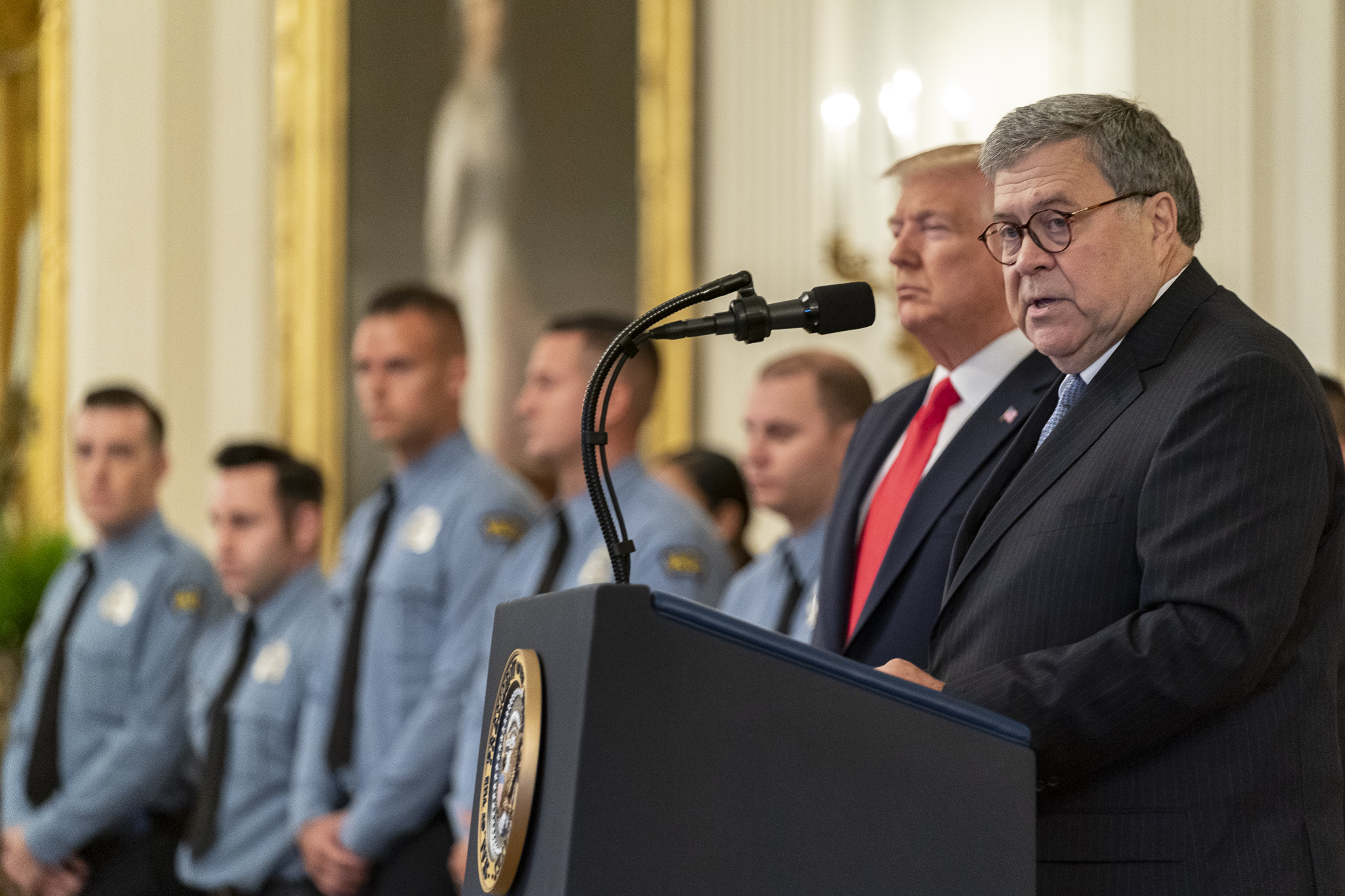Today's Headlines and Commentary
Breaking news in drone bases: President Barack Obama sent a War Powers letter to Congress today noting that as of October 12th, 2015, approximately 90 U.S.
Published by The Lawfare Institute
in Cooperation With

Breaking news in drone bases: President Barack Obama sent a War Powers letter to Congress today noting that as of October 12th, 2015, approximately 90 U.S. troops had deployed to Cameroon to “conduct airborne intelligence, surveillance, and reconnaissance operations in the region.” Quoting White House Press Secretary Josh Earnest, Molly O’Toole reports that the deployment was not determined by a “triggering event” but instead is based on continued support to confront Boko Haram. The Washington Post’s Craig Whitlock shares that U.S. drones in Cameroon will be unarmed. In total, approximately 300 U.S. troops are expected to deploy.
And for those keeping track at home, in addition to Cameroon, the U.S.’s Africa drone network now consists of assets in Djibouti, Ethiopia, Niger, and Sicily (for North Africa/Libya).
Assad’s forces are on the march in Syria. According to an exclusive Reuters report, the Syrian army, accompanied by Iranian and Hezbollah troops, are preparing to launch a ground offensive under the cover of Russian air strikes against insurgents in Aleppo. The latest maneuver is expected to build on the nascent alliance’s recently launched assault in Hama province. Two senior officials divulged that thousands of Iranian troops had arrived in the country to take part in offensives designed to take back territory from rebel groups aligned against the Assad regime. The AP confirms the now open presence of Iranian forces, claiming that there are around 1,500 Iranian troops in the country with more arriving daily.
But as Tehran engages more directly in the battle for Syria, it is rapidly bleeding talent. Al Jazeera tells us that two more commanders of the Iranian Revolutionary Guard Corps have been killed in Syria. The Daily Beast sums up the situation: “If the goal is to secure an Assad-led coastal Syrian rump-state, it is coming at a high cost to Assad’s Iranian ally.” Phillip Smyth covers some of the exploits of the recently killed commanders, outlining just how much their loss may mean for Tehran in the long run.
Yet as Assad’s forces mount their next assault, the United States is doing little to protect CIA-backed rebels on the ground. According to the Obama administration, the U.S. will be doing more equipping than training from now on, but many rebels on the ground are skeptical that the weapons will make it to them. Why? The United States has shown that it has no appetite for a broader proxy war with Russia at the moment, meaning that barring Turkish and Gulf state support, moderate rebels who remain are likely to be on their own this round. The U.S. continues to deliver TOW anti-tank missiles but, the AP notes, these will do little to keep Russian and Syrian jets away. Elsewhere, Al Jazeera discusses the confusion on the ground, where one Free Syrian Army commander says that “since the beginning of the revolution the U.S. has given nothing but promises.”
U.S. Secretary of Defense Ash Carter announced that the United States and Russia will hold a third round of deconfliction talks today, the Wall Street Journal reports. Secretary Carter called on Russia to changed its “failing strategy,” saying that “we’re not able at this time to associate ourselves more broadly with Russia’s approach.” His remarks came as Russian President Vladimir Putin criticized the United States for a lack of cooperation in Syria, suggesting the U.S.-led coalition had “mush for brains.” Putin told reporters that Russia had asked the United States for the positions of rebel forces they should not target, but had received “no answer.” For their part, American officials fear that Putin would use rebel coordinates to target the groups, not avoid them.
In Boston, Secretary of State John Kerry warned Russia that its support for Assad was likely to attract more extremists to the fight. His remarks came after the head of the al Nusra Front, an al Qaeda-affiliate in Syria, called on supporters to carry out retaliatory attacks against Russia. The Times reports that in an initial sign of potential blowback, two mortar shells struck the grounds of the Russian Embassy in Damascus yesterday. While there were no reports of casualties, Russian Foreign Minister Sergey Lavrov called the shelling “an obvious act of terrorism.”
Reuters reports that in Iraq, the Iraqi army and volunteer militia fighters have launched an operation to retake the northern city of Baiji from the Islamic State. Baiji, which is near Mosul, is the country’s largest oil refinery. A military spokesman said that under the cover of U.S. airstrikes, Iraqi forces had managed to enter the center of the city.
The AP shares that, according to Army Col. Steve Warren, a spokesman for the U.S.-led coalition in Iraq, Iraqi ground forces are now in position to retake the city of Ramadi, which is the capital of Anbar province. According to Col. Warren, Iraqi Security Forces are now within nine miles of the city’s outer suburbs and the coalition is entering the “decisive phase” of the operation. The Islamic State captured Ramadi back in July, prompting Secretary of Defense Carter to say that the Iraqis had “no will to fight.” The operation to retake Ramadi has been slowed by a sophisticated system of improvised explosive devices scattered around the city.
While Iraqi forces advance and the United States recalibrates its approach in Syria, Foreign Policy retells us about a new report from Amnesty International. The latter finds that Kurdish fighters may have committed war crimes, citing instances of “forced displacement, demolitions and confiscation of civilian property.” One farmer told Amnesty researchers that Kurdish forces threatened to tell the United States that his family was Islamic State if he did not leave his home.
Turkish police have named the two suicide bombers behind Saturday’s attacks. The Guardian reports that the pair were identified by DNA analysis from samples left at the attack site and were both “on a list of 21 potential suicide bombers compiled by the Turkish National Intelligence Organisation;" the latter tallied suspected members of an ISIS cell from the Turkish city of Adıyaman. One of the bombers named was the brother of another ISIS suicide bomber who killed 33 activists in the town of Suruc in July.
Days after the attack that left almost 100 dead in Ankara, Turkish President Recep Tayyip Erdoğan admitted to an intelligence failure and announced that Turkish authorities would investigate. Following the president’s admission, Turkey’s interior ministry suspended Ankara’s police, intelligence and security chiefs. Turkish authorities detained two Twitter users who had tweeted about a possible bombing in Ankara and suggested that the two were connected to Kurdish rebels.
According to the Journal, Turkish Prime Minister Ahmet Davutoğlu claimed that both the Islamic State and Kurdish rebels had been involved in the attack, an allegation that critics have dismissed as a political ploy. He also warned the United States and Russia against arming Syrian Kurdish rebels and suggested that Turkey considers supporting “PKK offshoots” as a direct threat to Turkey.
Despite the PKK’s unilateral ceasefire, Turkish forces have continued to fight the group, killing ten PKK militants near the country’s southeastern border. Calling into question the possibility of a peaceful settlement, Al Monitor describes the Turkish government’s snub of the current ceasefire as well as the nine others declared unilaterally by the PKK since the group began fighting Turkish forces in 1984. Optimistically, the paper suggests that maybe the tenth try will be the charm. Defense One highlights the various conflicts present between factions within Turkey today.
Israel is ramping up security efforts as violence continues throughout the country. The Journal reports that hundreds of Israeli troops will deploy in response to the uptick of violent attacks against Israeli citizens. Reuters also tells us that Israeli security forces have erected roadblocks in Palestinian parts of East Jerusalem. The Times points out how “leaderless Palestinian youths” are being driven to violence by social media, distinguishing the current surge in violence from the Second Intifada, “whose suicide bombings were orchestrated by well-organized armed groups.”
In the midst of this violence, Haaretz writes that Secretary of State John Kerry is planning to visit the region in hopes to ease tensions. The effort may represent his “most direct efforts to broker peace between the two sides since talks led by the United States failed last year.”
The United States is expected to discuss the question of Iran’s recent testing of a new precision-guided ballistic missile at the U.N. Security Council after suggesting that the test was a violation of a UNSC resolution.
As the AP reports that 29 Afghan border police were killed near Kandahar during three days of fighting the Taliban, the Post describes the Islamic State’s “new age of brutality” as it spreads to Afghanistan. In light of growing threats to the country, President Obama is considering plans to slow or halt the withdrawal of American troops. The Times outlines the various plans the president is considering, suggesting that an option under serious review is to keep 3,000 to 5,000 troops for counterterrorism. The Times also highlights the Taliban’s targeted attacks against women in Kunduz; women’s centers and organizations have been singled out by Taliban forces during its 15 day capture of the city.
The Post discusses a joint U.N.-Afghan report that suggests a decline in poppy cultivation in Afghanistan for the first time in six years. Largely due to poor weather conditions, the downtick has corresponded to a 48% decrease in opium production. Officials also claim that campaigns against poppy cultivation led to the decline in production.
A former Pakistani defense minister appeared to admit on Indian television that senior Pakistani military and civilian leaders were aware that Osama bin Laden was in Pakistan yesterday. The former defense minister, Chaudhry Ahmed Mukhtar, later denied the acknowledgement; over at the Post, you can read excerpts of a transcript of the conversation for yourself.
Following the not-so-shocking revelation that a Russian-made Buk missile brought down Malaysia Airlines Flight 17, Julia Ioffe writes that Russia’s “alternate history” of the flight matters: This and similar propaganda enables Russia to inhabit a parallel reality from that of the West. By opportunistically suggesting Ukrainian responsibility, “the Russian media and Almaz-Antey [the state-run manufacturer of Buk missiles] have acted like defense attorneys in a criminal trial, deliberately muddying the waters, fastidiously creating as much reasonable doubt as possible to lead the scent away from their client.”
Perhaps it’s not surprising, then, that after Dutch authorities released the results of their fifteen month inquiry, “Russia has appealed to the International Civil Aviation Organization to open a new probe” into the downing of MH17. Ukrainian separatists deny any complicity and Russia maintains that if the plane had, in fact, been brought down by missile fire, “it must have been fired by the Ukrainian military.”
A prosecutor for the International Criminal Court has found a “reasonable basis to believe that war crimes and crimes against humanity were committed in the context of the armed conflict” between Russia and Georgia in 2008. The prosecutor pointed to evidence of forced displacement by Russian troops that displaced thousands of Georgians.
Defense One reports that the Ukrainian government is negotiating a deal with U.S. arms manufacturer Textron Systems for new armor for its humvees and assault vehicles. If finalized, the sale would be Kiev’s “first major purchase from a U.S. defense company.”
Speaking alongside Australian Defense Minister Marise Payne yesterday, Defense Secretary Ash Carter suggested that uncertainty in the South China Sea was pushing countries in the region closer to the United States. The remarks came as Secretaries Carter and Kerry met with their Australian counterparts, in Boston, to discuss (among other things) the planned U.S. naval patrols of what China considers to be its territorial waters. Even so, despite pledges of “enhanced naval co-operation with the United States,” Australia will not join U.S. naval patrols intended to guarantee “freedom of navigation.” For its part, China has reacted to the planned patrols with a veiled jab at the United States, saying that “the biggest factor in the militarisation of the South China Sea” comes from countries that “have deployed offensive weaponry on a large scale and flexed their military muscles again[.]”
The governor of Okinawa has revoked a U.S. permit to construct a new Marine Corps base on the island. The Post writes that “many Okinawans are fed up with bearing the overwhelming burden of Japan’s military alliance with the United States.” Tokyo will likely challenge the governor’s decision.
ISIS-aligned Filipino militants thought to be part of the group Abu Sayyaf have released a video showing three foreign hostages along with a Filipino hostage. The Journal explains that the hostages were abducted from a resort in the Philippines more than three weeks ago. One of the hostages called on the Philippine military to halt its operations against the group and negotiate for the hostages’ release. A Philippine military spokesmen suggested that they were considering their response. The Times has more.
Politico reports that a three-judge panel of the 3rd Circuit U.S. Court of Appeals in Philadelphia voted unanimously to reinstate a lawsuit concerning NYPD surveillance of Muslims. In their decision, the judges invoked America’s history of discrimination and and, according to Politico’s Josh Gerstein, suggested that “the widespread surveillance of mosques, businesses, schools and community groups represented a repeat of those transgressions despite national security concerns.”
The AP writes that Sgt. Bowe Bergdahl’s lawyer “has accused Republican Sen. John McCain (R-AZ) of exerting ‘congressional influence’ in his client's case” following the senator’s remarks that the Senate Armed Services Committee would hold a hearing if Bergdahl was not jailed for charges of desertion.
Pentagon officials are eyeing three different facilities in Colorado as they look for “Guantánamo North,” one of which is nicknamed the “Alcatraz of the Rockies.” A Pentagon spokesman said the team was looking at what changes would need to be made for the facilities to hold a “limited” number of detainees.
The Democratic 2016 presidential candidates had their first debate last night. A sampling of commentary; The Post describes which candidates want to “bring Snowden home;” Foreign Policy highlights criticisms that arose concerning Hillary Clinton’s “hawkish” history; and over at Defense One, Molly O’Toole looks at Clinton’s defense of her foreign policy decisions.
Parting shot: It’s official. Siri is a traitor. Wired tells us that Siri can be used by hackers, who can either talk to her or silently transmit commands via radio signal up to sixteen feet away.
ICYMI: Yesterday, on Lawfare
Amira Mikhail, Lawfare’s newest contributor, outlined why France’s criminal investigation into crimes committed in Syria matters.
Bobby took a look at The Cuckoo’s Egg: Tracking a Spy through the Maze of Computer Espionage, published in 1989, and why it’s still worth reading.
Tim Edgar continued his series on the Schrems v. Data Protection Commissioner case, noting the hypocrisy in Washington and Brussels.
Email the Roundup Team noteworthy law and security-related articles to include, and follow us on Twitter and Facebook for additional commentary on these issues. Sign up to receive Lawfare in your inbox. Visit our Events Calendar to learn about upcoming national security events, and check out relevant job openings on our Job Board.






